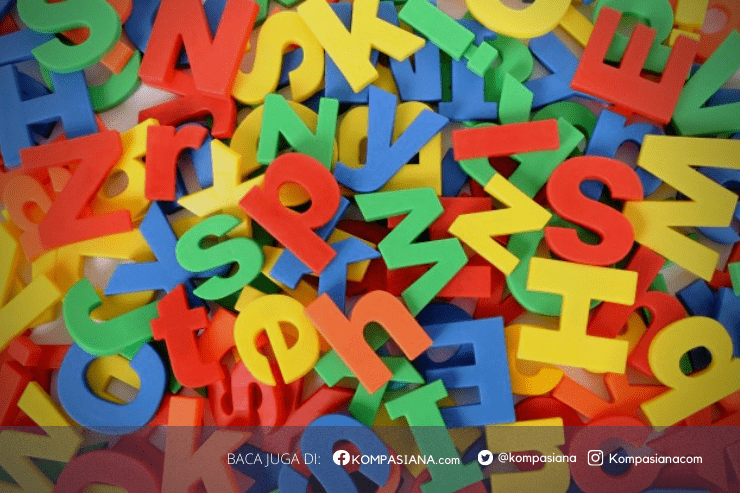The immediate pictures of whom you are dealing with when teaching English to young learners might be small beings with their unique characteristics, such as impish expression on their faces, open smiles, adorable outfit, or probably disruptive behavior. It might then lead you to think of young learners as either easy or difficult 'creatures' to teach. If you think that young learners are just little beings who can only learn something simple you may be fascinated by the idea that they can be taught by everybody without having appropriate training. But if you think that young learners are human beings who can learn complicated topics, then you may think of teachers who have adequate training only who can teach them.
As yet there has been a growing awareness acknowledging that teaching English to young learners is not as simple as we once thought. It is not a matter of teaching a list of simple vocabulary. It is rather an attempt to help young learners learn the language efficiently and effectively with the help of their environment, such as teachers, their peer-groups, parents, and their class situation. As such, teaching English to young learners needs skilled-teachers who are willing to always improve their teaching skills as they are facing complex beings with subtle attitude. The question is, do we have enough skilled-teachers to do that?
It is a pleasant thing to hear that there has been an upsurge of interest in the world of teaching English to young learners in Indonesia in line with the inclusion of English language as one of the local contents in primary school's curriculum. This growing interest can give a positive contribution to the development of English education to young learners as it might increase the number of English teachers needed for the teaching of the language. However, it can also create serious problems if it is not dealt with appropriately, as teaching English to young learners is often is understood by many, as an easy job to do and can be done by anybody without regard to his/her teaching background. If we determine that teaching English to young learners can be done by anybody without considering his/her teaching skills, we would create a loophole, so to speak, which might drag young learners to a risky situation. This is because young learners are easily driven. If teachers are not well prepared and do not know with whom they are dealing, they will only create detriments to learners. It is in light of this context that EYL teachers must know whom they are teaching and how they have to deal with them.
Whom Are We Teaching?
In the history of language teaching there has been a number of important educationists offering their views about young learners or children as the subjects we are teaching, such as Locke with the idea of ‘the child as blank slate’ Piaget 'the child as active learner’ and Vygotsky 'the child as social being'. Locke, with his idea of the child as blank slate, holds that children are born with their great potential for learning. Their minds, he maintains, may be viewed as white paper and are filled (nurtured) by the environment. It means that children are ready to be given knowledge by teachers. Thus, their way of learning tends to be teacher oriented, as the learning process is 'controlled externally by the transmitting authority rather than by the learner' (Locke, 1936 cited in Krogh, 1994: |42).Unlike Locke, Piaget believes that in the learning process children do not passively assimilate knowledge transmitted by the teacher. They actively operate on it, instead. "Children help reconstruct their own intelligence through active exploration of their environment' (Krogh, 1994: 43). This explains the tendency of the learners to become active self-builders. Bearing this in mind, we can assume that the teacher needs to provide a stimulating environment and act as facilitator if s/he wants to give efficient lessons to young learners. Similar to Locke, Vygotsky (cited in Cameron, 2001) says that children are actively exploring themselves. The difference is, the children's exploration in Vygotsy's theory takes 'place in a social context, i.e. in a world full of other people, who interact with them (2001:6). They play a significant role in mediating the world for children and help them to solve problems.
My standpoint, in relation to which view to consider when teaching English to young learners, is that the views proposed by Locke, Piaget, and Vygotsky should not be understood as "either-or'' options to hold by teachers. They should be seen as three 'pieces' of views forming a mosaic, where the three views fit one another well if arranged properly. Thus, young learners can function as three different types of learners at once, depending on the situation they enter. When they are receiving the lesson from their teacher, they will be like blank slates, suggesting that they are ready to be fed by their teacher. Yet, in searching for understanding the knowledge, young learners may change their style, from blank slate to active leaner style. After they have received enough input, they are ready to have a try. In the process of 'trial and error stage', they will again change their style. Now, they become social creature, which enable them to interact with the environment they enter. They will again become blank slates when receiving new knowledge; turn to active learners then trying to make sense of the words they hear; and become social creature when they associate themselves with others. In short, young learners can flexibly be blank slates, active learners, as well as social beings" This flexibility must be taken into consideration when we deal with them in teaching English to young learners.
Teaching English to Young Learners
Cameron (2001) proposes a thought provoking question in relation to the idea of teaching a foreign language to young learners. She asks: "What is different about teaching a foreign language to children, in contrast to teaching adults or adolescents?" (2001: 1). When I read this question, I immediately thought that teaching a foreign language to young learners could be interesting and easy since young learners are curious about learning; while teaching a foreign language to adolescents could be a bit more serious and tough. My discussion with English teachers to young learners, however, have convinced me that teaching English to young learners is not that easy, though interesting. Teaching English to young learners needs good teaching skills, creativity, thorough preparation, and patience. We must have all these attributes in order to make young learners keep motivated.
In response to her question above, Cameron (2001) says that the differences between teaching a foreign language to young learners, in contrast to adults are obvious. Children are often more enthusiastic and lively as learners than adults; children will have a go at an activity even when they don't quite understand why or how; children often seem less embarrassed than adults at talking in a new language, and their lack of inhibition seems to help them get a more native like accent. Yet, Cameron (2001) warns us that those are generalizations, which need to be unpacked.
Apart from whether or not the generalizations are acceptable, it is important to have knowledge about children's learning in order to ensure our teaching to run effectively. In the case of teaching English to young learners in Indonesia, knowing how young learners learn the language may become a key point for the teachers whether to stick to the belief to their teaching method; or to try a different method, which is more sensible. As we know, there have been never-ending arguments either in seminars or publications convincing that 'learner-centered' teaching is better than 'teacher-oriented' method of teaching, though there are still many teachers in Indonesia, whether they realize it or not, who tend to be 'teacher-oriented' in nature.
As has been portrayed by Piaget (cited in Krogh, 1994; Cameron, 2001), and Vygotsky (cited in Cameron, 2001), 'learner-centered' teaching will be effective if it is tuned to the learning needs of the pupils. Thus, if we are consistent with the proposals of Piaget and Vygotsky, we would agree that ‘learning-centered’ perspective should be the key point in teaching English to young learners.







